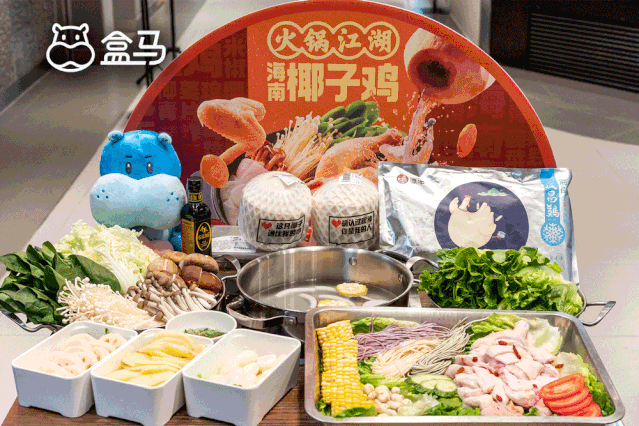type
status
slug
summary
tags
category
icon
password
ID
date
Author
URL
Chinese e-commerce giant Alibaba applied for several “Hema hot pot” trademarks, according to the China Trademark Office. As early as October last year, Hou Yi, president of the Hema, said that the hot pot would be sold in the Hema supermarkets across the country.
Hema, an intelligent supermarket brand founded by Chinese e-commerce giant Alibaba in 2017, is similar to Amazon Go, which aims to provide consumers with a consistent online and offline consumption experience.
Hema Hot Pot
Specific to the field of “Hema hot pot”, users can use Hema App at home to place orders for different hot pot set meals (the price is between 88 yuan to 188 yuan). All ingredients and hot pot base soup (excluding pot) will start from the Hema supermarket near the consumer and be delivered within 30 minutes.
According to the White Paper on the Development of China’s Hot Pot Industry from 2018 to 2019, China’s total catering revenue exceeded 4 trillion yuan in 2018, of which hot pot catering has become the largest category in the catering segment. Since 2014, the hot pot industry has grown rapidly. In 2018, the total income of the national hot pot industry is 875.7 billion yuan, which is expected to exceed trillion yuan in 2020.

Different hot pot set meal via Hema
Hema hot pot does not focus on “Sichuan hot pot”, because Sichuan hot pot is the most popular hot pot in China, but it also means that the competition in this hot pot field is the most fierce. Hema hot pot provides many different local characteristics of hot pot, such as Hainan coconut chicken hot pot, Chaoshan beef hot pot, Thailand Tom Yum Goong hot pot, and so on. Compared with “Sichuan hot pot”, these flavors of hot pot restaurants are less common in China, which means that box horses can reap this niche market.
Although hot pot is one of the most popular foods in China, the market has been severely affected by the epidemic-basically hot pot cannot be eaten alone.
Haidilao, China’s most famous hot pot chain, lost more than 1 billion yuan during the outbreak. According to the latest news, it has launched new Chinese fast food sub-brands “Rice Forest” and “Qin Xiaoxian” in Beijing, which sell Chinese dishes with rice and rice noodles respectively to supplement the shortcomings of hot pot.
During the epidemic in the first half of this year, more Chinese consumers got into the habit of using food delivery. At the same time, some small and medium-sized catering enterprises closed down during the pandemic, which created gaps in the relevant markets. Some Internet giants are aiming at this opportunity to try to enter the catering industry.
Earlier, the parent company of TikTok, another Chinese Internet giant, Bytedance registered the trademark “ByteCoffe” with the application categories of “convenience food” and “food and accommodation”. Hinting that the Internet company may be moving into the coffee chain.
- Author:NotionNext
- URL:https://pandayoo.com/2020/10/14/alibabas-intelligent-supermarket-brand-hema-began-to-enter-the-hot-pot-business
- Copyright:All articles in this blog, except for special statements, adopt BY-NC-SA agreement. Please indicate the source!